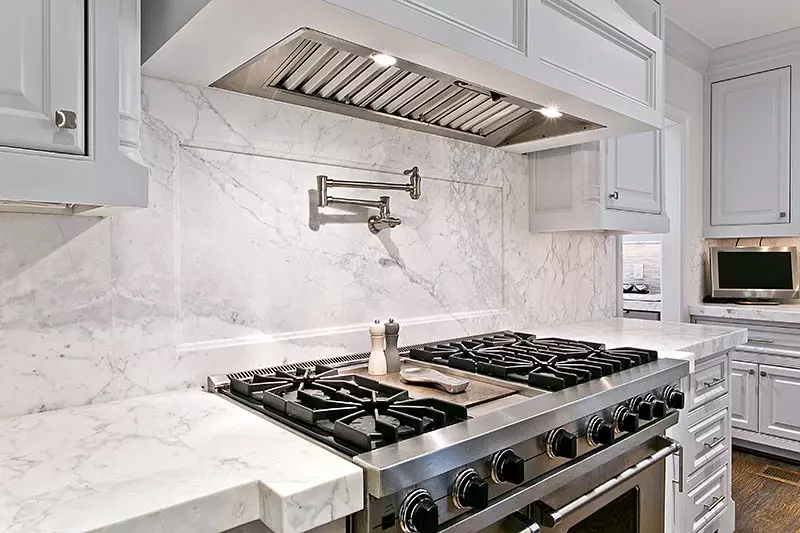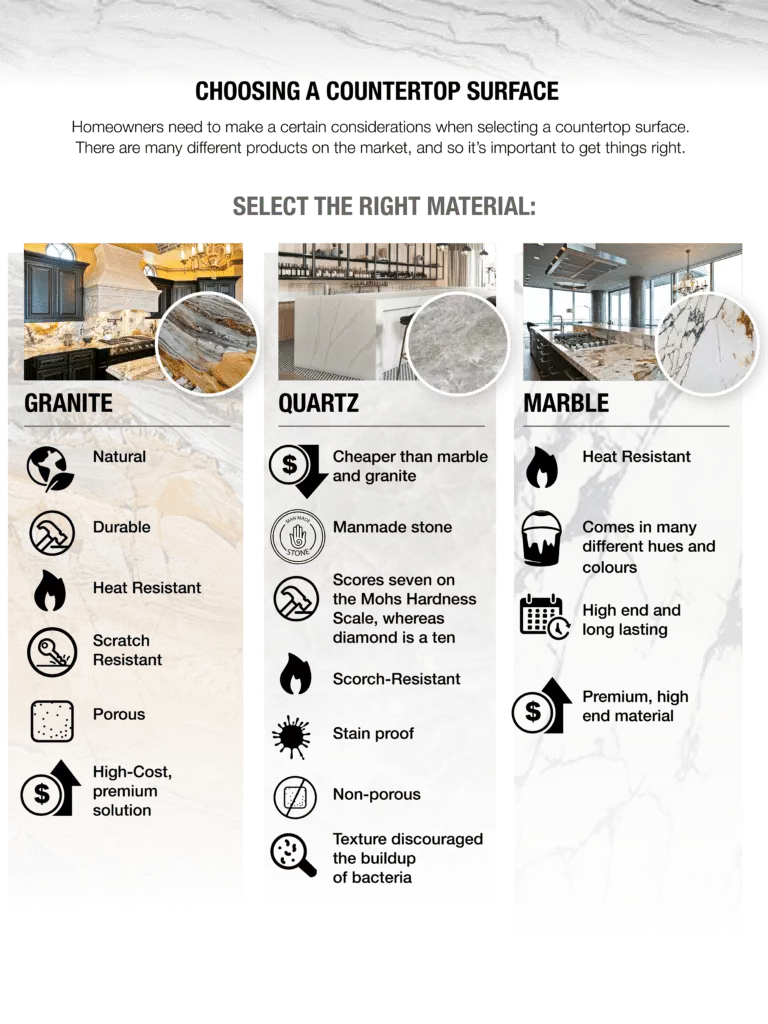
Natural Stone
The creation of natural stone is a complex process that occurs over millions of years. First, it begins with the formation of magma deep beneath the Earth’s surface. As the magma cools and solidifies, it forms igneous rocks. Over time, these rocks are subjected to immense pressure and heat, causing them to transform into metamorphic rocks. This transformation occurs through the process of recrystallization, where the minerals within the rock reorganize themselves into new configurations. Finally, these metamorphic rocks can undergo erosion and weathering, breaking down into sedimentary rock. Through this cyclical process, natural stone is created and continues to evolve over time. Quarried from all over the world, it yields a variety of colors and mineral compositions.
For More Information


What are the Different Types of Natural Stone?
Natural stone is a popular choice for slabs due to its durability and aesthetic appeal. Moreover, it comes in various types such as granite, marble, limestone, and quartzite, each with its unique characteristics. Granite, for instance, is known for its strength and resistance to scratches and heat. On the other hand, marble is prized for its elegant veining and polished finish. Limestone offers a softer, more natural look, while quartzite is highly durable and resistant to stains. Additionally, slabs are available in different sizes and thicknesses, making them versatile for various applications. Overall, natural stone slabs offer a timeless and luxurious option for a wide range of architectural and design projects.
For millennia, man has been digging up the work of millions of years of tectonic movement, volcanic activity, and the decay of aquatic animals. From the earliest quarries in Carrara, Italy, to the green hills of Vermont, the quest for natural stone has uncovered a canvas beneath us that tells a story of the earth’s past. The Romans first quarried the hills of Tuscany for marble and that legacy continues to this day.
Choosing a Countertop Surface
Granite | Marble | Quartzite | Travertine | Onyx | Soapstone | Limestone | |
Durability | Resistant to heat, scratches and chemicals | Resistant to heat Easily scratched & affected by harsh chemicals. | Highly resistant to heat, scratches, and chemicals | Highly reactive to acidic solutions, extremely porous, not the best choice for countertops | Unfortunately, onyx countertops are soft, fragile and require a lot of maintenance. Although similar to other natural stones in many ways, it’s not as hard | Very durable, resistant to heat, chemically inert, and scratch resistant | Is Heat resistant, and can scratch and stain. |
Construction | Natural Stone | Natural Stone | Natural Stone | Natural Stone | Natural Stone | Natural Stone | Natural Stone |
Easy to clean & Maintain | Yes | No | Yes | No | Yes | Yes | No |
Needs to be Sealed? | Yes | Yes | Yes | Yes | Yes | No | Yes |
Wide selection of color options? | Yes | No | Yes | No | Yes | Yes | No |

